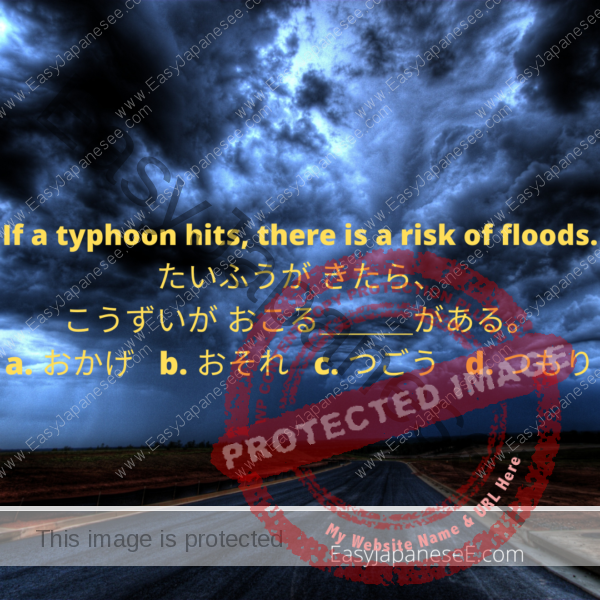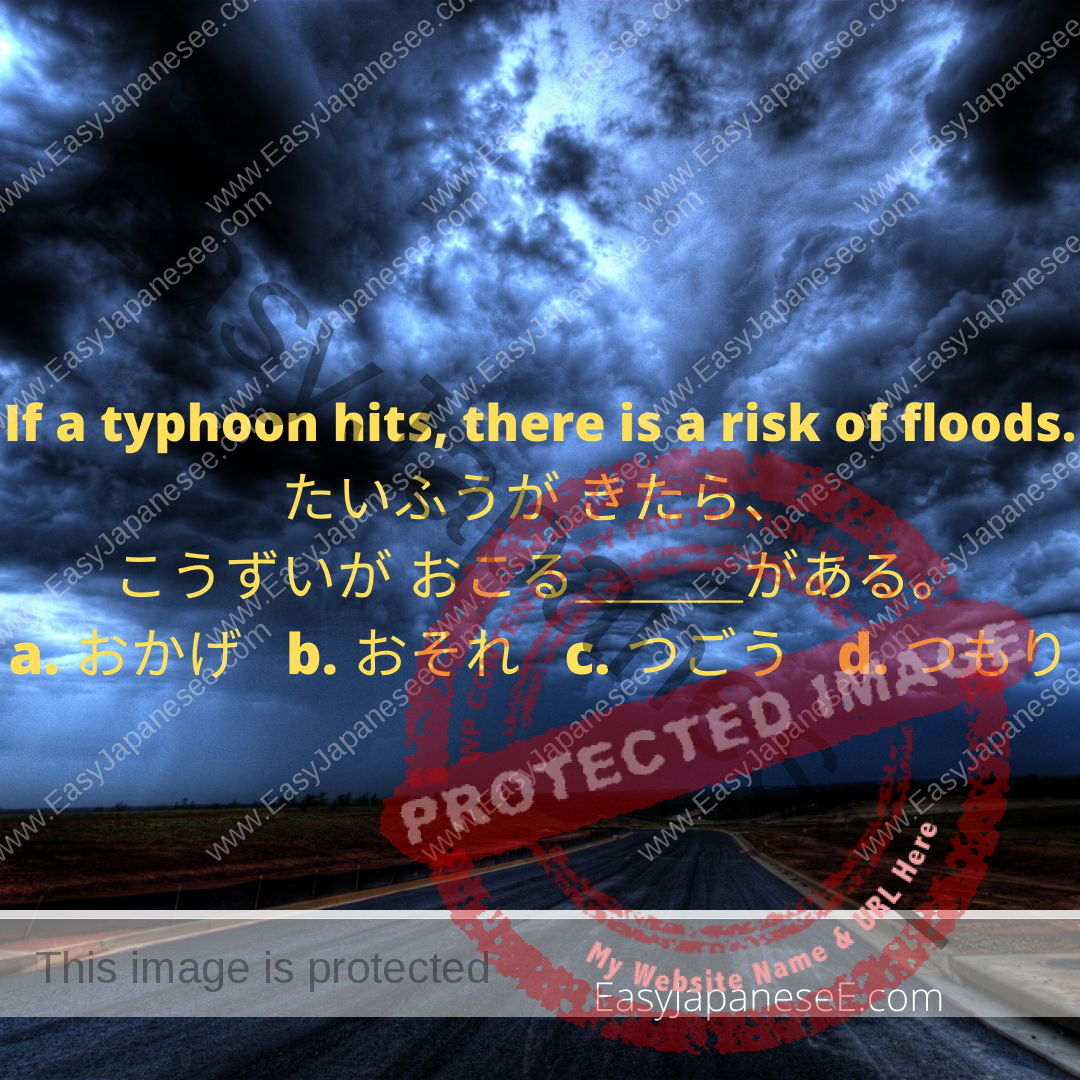
Today’s Grammar Point
~恐れがある = It is feared that ~, to be in danger of ~, to be liable to ~
恐れ means “fear” so the literal translation is there is a fear that/of ~ and it is used where there is a possibility of something bad happening.
Connection
- [plain form verb] 恐れがある
- [noun] の 恐れがある
Examples
台風が来たら、洪水が起こる恐れがある。(Today’s question sentence)
If the typhoon comes, there is a risk of floods.
その条項は民主主義の精神に反する恐れがある。
There’s a risk that the provision may run counter to the spirit of democracy.
この容疑者は海外に逃亡する恐れがある。
There’s chance that this suspect may flee abroad.
台風のために、洪水が起こった恐れがある。
It is feared that the typhoon may have caused some floods.
余病併発の恐れがある。
There is a danger that complications might set in.
失敗の恐れがある。
It may not work.
Changing to negative
If there is no danger, we can change ある to ない but the particle が often change to は at the same time and if that happens は in the affirmative sentence will change to が.
その条項が民主主義の精神に反する恐れはない。
There’s no risk that the provision may run counter to the spirit of democracy.
この容疑者が海外に逃亡する恐れはない。
There’s no chance that this suspect may flee abroad.
失敗の恐れはない。
There is no danger of failing.
The answer to today’s question
b. おそれ

